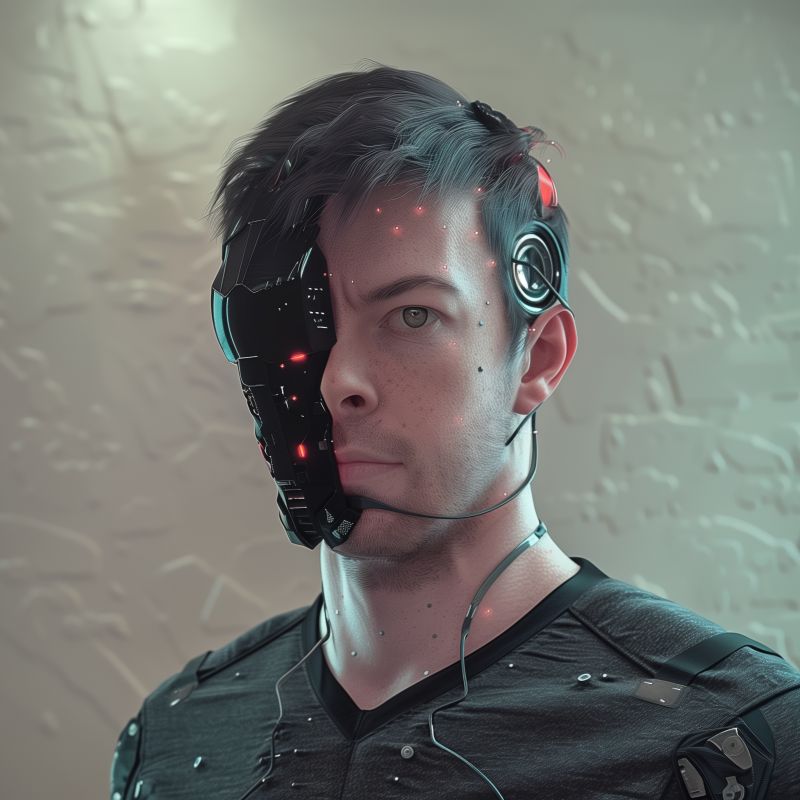Watch out – AI is coming after your B2B content marketing job!



How did we get here and is there actually any truth in AI replacing us marketing types anytime soon?
Artificial intelligence is fast gaining momentum in B2B marketing everyday life. Once used to really only perform the monotonous life admin tasks we all didn’t want to do, it now seems AI is coming after the professions that require the highest levels of skill and creativity.
In our latest B2B Unveiled podcast, we discuss this topic and how AI is specifically being used to speed up the copy and content writing process with our lead words man, Chris Banner. So in this blog we focus on the opportunities presented by AI to support content and copy development, whilst also considering the potential drawbacks and contemplating if the role of professional copywriter is under threat anytime soon!
A brief history of AI time
Before we delve in, let’s take a step back and look at the brief history of AI and how it came to the b2b marketing fore we are now experiencing. Firstly, it’s worth mentioning that automation from AI isn’t some new fangled phenomenon – it’s been around for decades. Mainly used in industries like logistics, call centres, manufacturing and robotics it often replaced the repetitive jobs that companies struggled to recruit for.
Then came the development of more sophisticated software. For years, AI was an ‘intelligent’ technology mostly used to crawl huge datasets to find patterns – but it’s the rise of generative AI which builds on this pattern-finding to apply rules to words, images and sounds, that now seems to be exploding in the b2b marketing space.
Although AI can’t quite think like we do, it’s capable of joining the dots and predicting sequences of words or ideas. It does this through a process of machine learning, the ability to take past data and experiences and process them in a similar way to how our human brains do. Combined with advances in natural language processing (NLP), AI tech is now producing much more sophisticated results.
OpenAI, the company behind ChatGPT is already being used by millions of users to create human-like responses to questions and generating articles, emails, blogs, speeches, and social content in seconds. So, it can write like a human, but can it take the leap into the role of a marketer, whose bread and butter might be to write exactly this sort of content?
Well, maybe soon. In 2023, a report from Goldman Sachs into generative AI stated that it could potentially automate 46% of administrative tasks, compared to only 6% in construction. Browse any UK news site and you’ll come across stories about how workers have already been replaced by artificial intelligence. It seems that economic downturns and increases in business costs can entice companies to take the cheapest option to maximise return on investment. After all, why pay someone handsomely to write what an app can write for free in seconds?
But is it really that straightforward? We think it depends on what you’re looking for. ChatGPT has the potential to replace a writer if you’re looking to churn out straightforward content that requires no expert opinion or additional commentary, so for many businesses it’s a good time and cost-effective option.
Ai-driven content however is sourced from existing web content so where’s the original thought? Plus, generative content still needs human intervention (and some would argue a trained copy expert) to prompt, proofread and potentially edit the output of these programmes. So, perhaps it’s less about seeing AI as a threat and more as just another tool in your armoury to use when appropriate?

An evolving relationship between AI and copywriting
As Chris quite rightly points out in our podcast, technology is always evolving to a point where it quickly becomes saturated and then ingrained into the creative process. Take the relationship of artist scamps to design, for example. Sketching, whether digitally or using good old-fashioned pen and paper, still retains its place as a primary method of getting ideas out of heads and into the real world, however sophisticated the concept development may be afterwards with apps for prototyping wireframes and storyboards.
Nobody questions a designer’s integrity in using an array of tools to communicate their vision and ideas, so why should copywriting be any different? As we touched on previously, could AI actually be a writer’s new best friend? A virtual assistant to take on some of the preliminary tasks we’d rather not do or haven’t the time to do?
To fully understand the true worth of a technology (and whether it’s likely to stick around) we have to understand both its capabilities and limitations.
The case for using AI
As we said, AI programmes like Chat GPT create content much faster than us, its human counterparts, which for simplistic or formulaic content like listicles or product descriptions, can be invaluable. We’ve also covered that it offers up a cost-effective solution in that access to these programmes is free or available for a minimal subscription fee.
As more content becomes available, algorithms adapt and become more efficient at pulling together relevant responses. To that end, AI is fast becoming really useful for gathering vast amounts of information on any given topic in seconds, which can save a writer valuable hours spent trawling the internet for research. It can also help with aspects some writers struggle with, such as SEO, by suggesting keywords, and ideas to boost visibility ranking.
Is AI-generated content formulaic and devoid of any personality? Well, that’s much debated, but an AI-text generator is only as good as the people providing the prompts. Much like traditional copywriting, it requires a decent brief to produce the desired results. AI content generators can be trained to respond with humour, to mimic a certain celebrity or public figure, or a brand’s tone of voice, all of which is there to be leveraged by the person using it. We’re sure that a new role will soon emerge in a marketing team or agency – that of Expert AI manager – as AI technology becomes more advanced and requires expert input to extract hyper-relevant content.
And the case against
Personality debate aside, there are limitations that come with AI-generated content. We have to remember that programmes like ChatGPT rely on gathering information from content that’s already out there in the public domain, so it’s not capable of generating ideas or concepts that are truly new. Secondly, there are the issues of data quality, integrity and credible sources.
Many have fallen foul of using content pulled from sources that are either outdated or factually incorrect. Take the example of news site CNET which used AI to write some of its articles resulting in nonsensical content being published and multiple corrections being issued. It would suggest fact checking remains a human responsibility, so we still have a role!
Then there’s the objectivity of a piece that gets pulled into question. As AI-generators rely on data and algorithms to pull their results, quite often tone gets lost in translation. Great for providing definitive yes-no answers, but not so hot on nuance and humour! There’s also the rather obvious issue of plagiarism, and AI-content detectors are on the rise in both workplace and educational settings to counteract any attempts to cheat on essays and thesis that require original thought input.
Then there’s the slightly dystopian side of AI being used for nefarious activities (we’ve already seen the Deepfake videos to know what AI is capable of). We’re hoping there’ll be news soon around establishing ethical frameworks and regulation around its safer use in the not-too-distant future. However, as we saw with the rise of social media trolling and stalking, it could take time to catch up to what’s happening in the real world.

The future of copywriting
Okay then, let’s be clear, we’re not saying AI is all bad. For all intents and purposes, it’s too late now to put a lid on it anyway – AI is indeed here to stay as smart technologies continue to dominate our lives. On balance, it has its merits and indeed there are copywriters out there already embracing these programmes, because ultimately, it can help us out.
It can remove some of the more time-consuming tasks like providing draft outlines and bullet point summaries or throwing out 10 SEO headline suggestions when us B2B marketers are up to our eyes in deadlines. What it can’t do, is replace the critical thinking and creative light-bulb moments that go on inside a copywriter’s head.
You see, it can’t take on the complexity of content strategy just yet. It can’t help you figure out your brand’s identity just yet. It doesn’t have your lived experience, your years of curated ideas from random late-night conversations just yet, bus stop-ads and scribbles on envelopes. And it can’t empathise with your audience. At least not yet anyway.
So, will AI take your job? Probably not next week, but it will change the way you do it and it may start to make more and more inroads into your skill territory.
Convinced you still need a friendly and empathetic human to help you with your B2B content? To find out more about our copy and content writing services for B2B businesses, visit this page.
Also have a listen to what Chris, our Senior Copywriter has to say about AI and B2B copywriting in our podcast here: B2B Unveiled